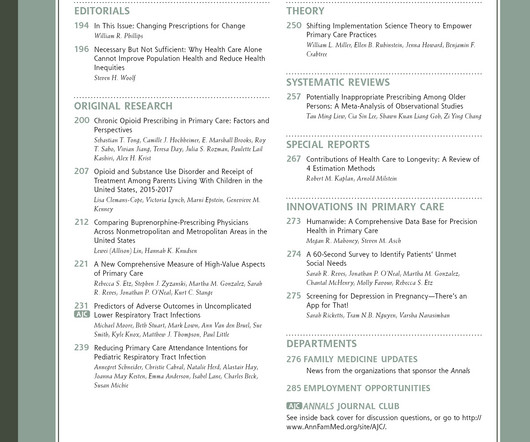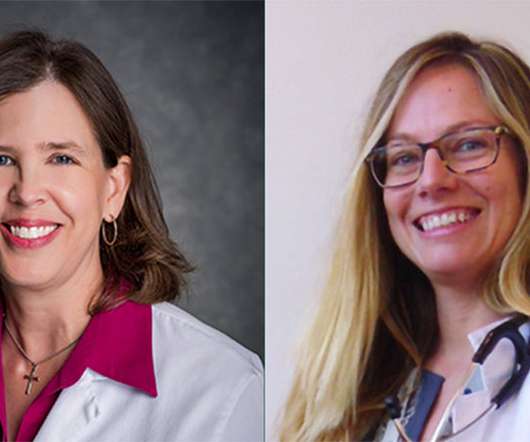Self-management support as an add-on to usual care for adults experiencing anxiety: A pragmatic randomized clinical trial [Behavioral, psychosocial, and mental illness]
Annals of Family Medicine
NOVEMBER 20, 2024
Self-management support (SMS) is a complementary intervention to evidence-based treatments that promotes self-efficacy and empowerment. While SMS is well established for chronic physical conditions, evidence is lacking to support the implementation of structured SMS programs for common mental disorders, and particularly anxiety.
















Let's personalize your content